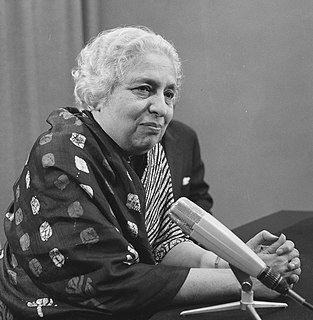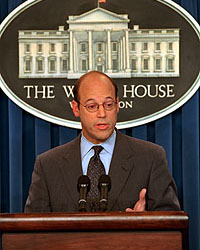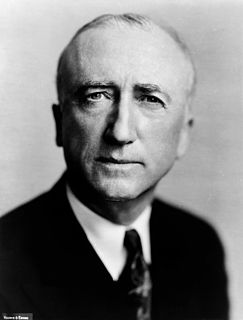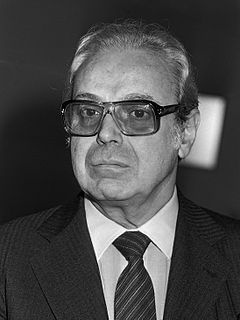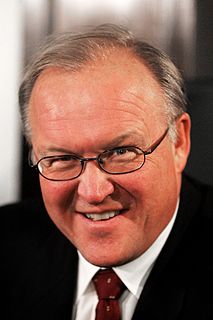A Quote by Vijaya Lakshmi Pandit
When the United Nations was born it was believed to be a positive instrument for peace. From this exalted position it became an organization in which nations would at least keep talking instead of shooting. Soon it was discovered ... that words were as deadly as any weapon, and when these words had a number of interpretations they could and did lead to conflict.
Related Quotes
Everybody knows that the United Nations is not the Secretary-General; he has an important position, but the United Nations is the states within this organization, and to be frank, most of the people say only the five permanent members; this is the United Nations because they have the veto, they can do whatever they want and they can refuse whatever they want, and if there's a reform that is very much needed for this organization.
The founders of the United Nations expected that member nations would behave and vote as individuals after they had weighed the merits of an issue - rather like a great, global town meeting. The emergence of blocks and the polarization of the United Nations undermine all that this organization initially valued.
The attack upon Korea was an outright breach of the peace and a violation of the Charter of the United Nations. By their actions in Korea, Communist leaders have demonstrated their contempt for the basic moral principles on which the United Nations is founded. This is a direct challenge to the efforts of the free nations to build the kind of world in which men can live in freedom and peace.
I believe that our world needs an instrument of global action as never before in history. I believe that the United Nations is the instrument for securing peace and for giving people everywhere, in poorer countries as in richer, a real stake in that peace by promoting development and encouraging cooperation. But the United Nations is only an instrument, an actor in need of props and cues from its directors, And so I will paraphrase Winston Churchill: Give us the tools-the trust, the authority and the means-and we will do the job.
It is not the Soviet Union or indeed any other big Powers who need the United Nations for their protection. It is all the others. In this sense, the Organization is first of all their Organization and I deeply believe in the wisdom with which they will be able to use it and guide it. I shall remain in my post during the term of my office as a servant of the Organization in the interests of all those other nations, as long as they wish me to do so.
The United Nations would probably have to rest on two pillars: one constituted by an assembly of equal executive representatives of individual countries, resembling the present plenary, and the other consisting of a group elected directly by the globe's population in which the number of delegates representing individual nations would, thus, roughly correspond to the size of the nations.
The Jews believed they were the nation God had chosen among all the nations. And they were. But that did not give them immunity to God's judgment. Like the nations, they too would feel God's wrath if they refused to live in God's ways. Furthermore, God could deal with other nations in mercy as well as judgment. Jeremiah was full of surprises, as against the popular religious assumptions of his day. That's perhaps why some people, when they encountered Jesus, thought he was very like Jeremiah. He turned things upside down.
Human nature being what it is, peace must inevitably be a relative condition. The essence of life is struggle and competition, and to that extent perfect peace is an almost meaningless abstraction. Struggle and competition are stimulating, but when they degenerate into conflict it is usually both destructive and disruptive. The aim of political institutions like the United Nations is to draw the line between struggle and conflict and to make it possible for nations to stay on the right side of that line.
An institution that...would permit Iraq, a terrorist state that refuses to disarm, to become soon the chair of the United Nations Commission on Disarmament, and which recently elected Libya - a terrorist state - to chair the United Nations Commission on Human Rights of all things, seems not to be even struggling to regain credibility. That these acts of irresponsibility could happen now, at this moment in history, is breathtaking.
The United Nations exists not merely to preserve the peace but also to make change - even radical change - possible without violent upheaval. The United Nations has no vested interest in the status quo. It seeks a more secure world, a better world, a world of progress for all peoples. In the dynamic world society which is the objective of the United Nations, all peoples must have equality and equal rights.
For the world to supersede the United States and for the United States to become subservient to the world, which is the United Nations in practical application, just rubs people the wrong way. Because the United Nations is nothing but a fleece organization, fleecing our money, under the guise that we owe it because we've committed so many injustices and transgressions.
